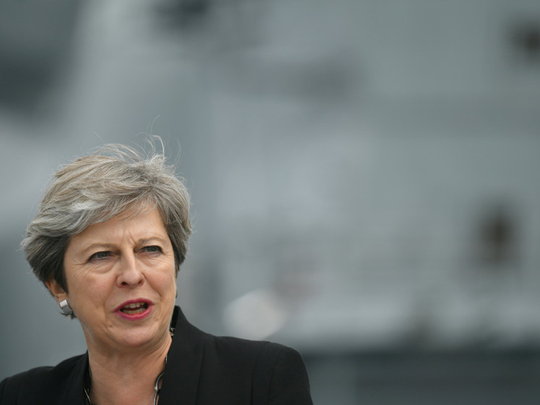
Hollywood recognised long ago that a British accent makes a fine complement to cold-hearted villainy. George Sanders’ laconic aristo-drawl as the voice of Shere Khan in Disney’s adaptation of The Jungle Book is a personal favourite, but the competition is close: James Mason in North by Northwest; Anthony Hopkins in Silence of the Lambs. It works because of the tension between suavity and cruelty. Refined manners are supposed to be the stylistic opposite of violence. So there is something chilling about the polite fanatic.
And politeness is integral to Britain’s international brand. The United Kingdom also has — or had, until very recently — a reputation for political moderation. It is an image we cherish and for which we find plausible historical evidence. British democracy is old and resilient. It emerged without recourse to Jacobin-style terror.
It spawned successful sequels in America and Australia. It defeated fascism. Alongside institutional consistency, Britain claims a cultural aversion to swaggering demagoguery. Churchill, Britain’s most venerated orator, never hectored. “Now this is not the end,” he famously declared in 1942. “It is not even the beginning of the end. But it is, perhaps, the end of the beginning.” The word “perhaps” there is a thing of understated beauty: A caveat wrapped in a proviso, inside a managed expectation. It is hard to imagine audiences on the British side of the Atlantic swooning to his crass delivery.
To succeed in Britain, radicalism eschews the fancy dress of martial bombast. Nigel Farage advanced the cause of Brexit not by banging podiums but by propping up the bar, nudging and winking at insurrection through a pint of ale. At the other end of the spectrum, Jeremy Corbyn confounded his Labour critics and outwitted Tory attacks by refusing to fulfil the sinister Stalinist caricature that adversaries projected on to him.
Some of the company Corbyn has kept and the abundance of hammer-and-sickle badges at his rallies suggest, at the very least, indulgence of those who pine for the aggressive overthrow of British capitalism. But the man himself too closely resembled a gentle geography teacher for that to be a credible threat in the election campaign. While it is commonly accepted that the centre ground of British politics is beaten and hollowed out, there is a curious reluctance to accept the obvious corollary: That the UK is being led to extremes; that Britons are on the brink of something like a revolution, which, if history is any guide, brings economic turmoil and social disturbance. This denial is best revealed in the impossible position that British Prime Minister Theresa May finds herself on return from her summer holiday this week. The prime minister’s popularity this time last year reflected a capacity to project the values of unflappable steadiness that Britain likes to imagine as its default setting for good government. Her precipitous fall from grace conveys the impossibility of bringing that ethos to a project as inherently destructive as Brexit. It is the breaking apart of an apparatus that evolved peacefully for a generation and the political suppression of those who liked that apparatus or aren’t persuaded that the alternatives are better.
There is a conflict there that, in May’s absence, the cabinet has struggled to contain. A policy paper, setting out UK proposals for transition out of the European Union’s (EU) customs union, is a restatement of the unfeasible ambition that Britain can keep all the benefits of the existing alliance, while also assembling a rival alliance — having its cake, eating its cake and asking its dining partners to be patient while it orders more cake. That is a confection to defer the inevitable humiliation of either Philip Hammond, who cares for EU ties, and Liam Fox, who does not. The chancellor fears full-scale revolution; the international trade secretary craves it.
One must defeat the other. The prime minister will have to pick a side. She must protect and empower the Tory Brexit Mensheviks or go full Bolshevik, and relish the ensuing turmoil. The honest revolutionary argues that trauma is unavoidable, but necessary for the ultimate goal: The appetising allure of the omelette justifies the breaking of eggs. But ideological Leavers (including, perhaps, Corbyn, whose ultimate ambition on this front is opaque) do not make that case. Instead, the whole business is shrouded in the dank mist of false moderation: A polite avoidance of hard questions, and the passive aggressive cult of “keep calm and carry on” — of which May was briefly the exulted incarnation. Beyond Britain’s shores, no one thinks Brexit is consistent with the nobler traditions of British pragmatism. But then, Britain’s self-image as the most reasonable nation on Earth has always been tempered by overseas insight into its darker side, up to and including the occasional sacking of European cities by its travelling football fans.
I used to believe in Britain’s immunity to extremes. There is a seductive myth fusing island geography, temperate climate and liberal traditions into an inherently reasonable soul, of which British understated wit and self-deprecation are the adorning expression. I still hope that Britain holds deep reserves of decency to tame the violent impulse that attends revolution. But I am less sure than I was a year ago.
In gloomier moments, I wonder if those Hollywood villains didn’t capture, in cartoonish excess, a subtle hypocrisy in the British style that mistakes manners for moderation. Tory radicals cast themselves in the heroic tradition, as the swashbuckling adventurers, freeing the UK from continental shackles to find riches on the high seas. But there is another archetype, familiar to Britain’s international audience: Brexit as the well-spoken fanatic, urging chaos in honeyed tones, sheathing villainy in gentility.
— Guardian News & Media Ltd
Rafael Behr is a political columnist for the Guardian.









